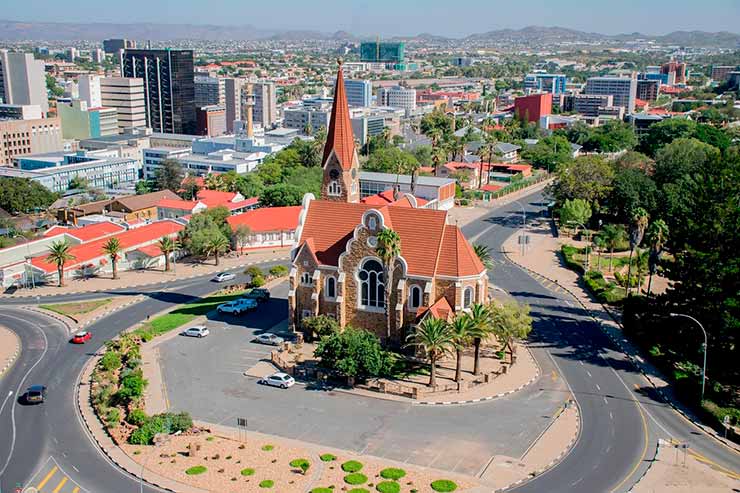Digital nomad visas are becoming increasingly popular in Africa, as more and more people are choosing to work remotely. These visas make it easier for remote workers to explore the continent while working from anywhere with an internet connection.
Working remotely has many benefits, including the ability to work from anywhere, flexible schedules, and the freedom to travel. Digital nomad visas are designed to make it easier for remote workers to take advantage of these benefits while exploring new cultures and countries.
In this blog, I will provide an overview of the digital nomad visas currently available in Africa and the requirements for obtaining one.
What Is a Digital Nomad Visa?
A digital nomad visa or in some cases a temporary residency permit allows a visitor’s right to remain in a nation and work remotely for a company or employer located abroad using a computer or laptop. These visas usually last for a year, but depending on the country that issues them, they may be extended for a year or longer.
Not everyone can benefit from these types of visas; many digital nomads will continue to travel on tourist visas because it is less expensive or they do not require a long-term visa.
African countries that offer digital nomad visas and their requirements
In Africa, there are now three nations that grant visas to digital nomads. Each of them has an advantage of their own, and applying is done online in a fairly straightforward manner.
Now, it’s rare for remote workers to have the chance to travel to a new part of the world, and digital nomads are hopping at the chance. These digital nomad visas for Africa allow them to live a once-in-a-lifetime, unique adventure.

Cape Verde recently introduced its digital nomad visa, called the Cape Verde Remote Working Program. The visa allows digital nomads to stay in the country for up to six months with the option to renew. To be eligible for the visa, you must work for a foreign company, own a business, or work as a freelancer with foreign clients. You must also have a valid passport, proof of remote income, an average bank balance of €1,500 for the last six months, proof of international health insurance coverage, proof of booking accommodations in Cape Verde, an official background check, and pay a visa processing fee of €20.

Kenya offers a digital nomad visa that allows remote workers to stay in the country for up to one year. To be eligible for the visa, you must have a monthly income of at least $2,000, a valid passport, proof of health insurance, and a return ticket or onward travel itinerary. The visa costs $250 and can be renewed once.

South Africa has a digital nomad visa that allows remote workers to stay in the country for up to one year. To be eligible for the visa, you must have a monthly income of at least ZAR 30,000 (about $2,000), a valid passport, proof of health insurance, and a return ticket or onward travel itinerary. The visa costs ZAR 4,200 (about $280).

Mauritius digital nomad visa, also known as the Premium Visa, allows remote workers to live in the country for one year, with the option to renew for another year. The application is free to file, and you will receive an answer within 48 hours of approval or denial.
You may bring family members and dependents with you as well. If you hold the visa, you will become a tax resident if you spend more than 183 days in the country. To be eligible for the visa, passport must be valid when applying for the visa.
Work Remotely – You must work for a company, own a business, or freelance with clients outside of Mauritius. Earn $1,500/month – You must meet the income requirement, this increases by $500 per dependent/family member you bring under the age of 24. Earn $3,000/month if applying as a couple. Travel and Health Insurance – You must have insurance coverage in Mauritius for the duration of your stay.

Namibia is a beautiful southern African country that recently introduced a digital nomad visa to welcome remote workers. The Namibia Digital Nomad Visa allows applicants to live and work in the country for an initial period of up to six months as a remote worker. The visa can be renewed for a total of one year in Namibia. To qualify for Namibia’s digital nomad scheme, you’ll need a minimum income of $2,000 (£1,780) per month, plus more if you’re bringing any dependents. You’ll also need proof of income, health insurance and the usual travel documents. The visa itself costs $62 (£55).
Benefits of digital nomad visas
The obvious benefit of these programs is that you can enjoy a long vacation while maintaining a stable source of income without putting your career on hold. Most regions that offer digital nomad visas already have the infrastructure necessary to support remote workers, such as strong wifi as a selling feature. For instance, Anguilla has two telecommunications network providers that offer high-speed internet.
In addition to the benefits of living in a foreign country, digital nomad visas can also help boost local economies and stimulate various sectors such as hospitality, real estate, and local businesses. For example, South Africa’s tourism industry could benefit from digital nomad visas by attracting skilled professionals and boosting tourism revenue.
Disadvantages
Being a digital nomad requires a job that’s remote and flexible. This is especially important when it comes to logging in hours when there’s a time difference. Although these kinds of jobs have become more common in the wake of the pandemic, this may be a guaranteed deal-breaker for some companies and workers.
Visas can be costly and if the application for your next destination is rejected, you could be left scrambling to find a new place to live before you’re forced to leave once your current visa expires. Moving around can also make it harder to form long-lasting relationships, while the constant distance can also put a strain on existing ones.
Unless a country offers you permanent residency when your temporary visa expires, there’s little point in putting down roots where you won’t be living after a year or so. And although this lack of ties can be seen as a plus to those who value their independence, anyone thinking about a lengthy period abroad should carefully consider how isolating it might be.




